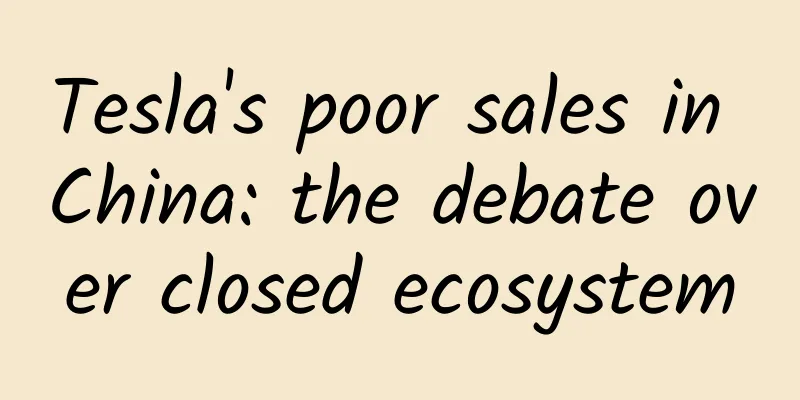Helplessness and ignorance: Why does Qualcomm repeatedly attack Meizu over patents?

|
After Qualcomm sued Chinese mobile phone manufacturer Meizu for patent infringement in China, it recently took legal measures to protect its own patent rights in the United States, Germany and France, including filing a complaint with the U.S. International Trade Commission, suing Meizu for patent infringement in the Munich District Court, and advocating for an infringement seizure action in France to collect evidence of possible infringement by Meizu in France. Perhaps the industry is puzzled as to why Qualcomm is so difficult with Meizu over patent licensing? As we all know, since the National Development and Reform Commission of China reached a settlement with Qualcomm's patent monopoly in the Chinese market (including the so-called patent licensing rate) and established a reasonable patent licensing rate and method, many mainstream Chinese mobile phone companies including Huawei, OPPO, vivo, Lenovo, Xiaomi and more than 110 related companies have signed patent licensing agreements with Qualcomm. However, Meizu has never signed a patent licensing agreement with Qualcomm after repeated communications with Qualcomm, even though it admitted in its official response after Qualcomm sued Meizu that it was indeed using Qualcomm's related patents. What puzzles the industry is that since it has admitted to using Qualcomm's patents, why has Meizu been slow to sign a patent licensing agreement with Qualcomm? Just when Qualcomm decided to take legal action in the United States, Germany and France to protect its patent rights and sue Meizu, Meizu once again made an official response. While confirming that it would definitely pay patent licensing fees to Qualcomm, Meizu pointed out that Qualcomm charged monopolistic and unreasonable rates, and cited a 66-page report co-authored by two smartphone litigation lawyers and an Intel executive that showed that patent fees would account for about 1/3 of the phone's selling price. It said that if it is not stopped, there will be the following strategic and historical consequences: First, tens of billions of dollars in patent costs will be passed on to consumers every year. Second, the development of a number of national enterprises will be unfairly hit. Is the fact really as Meizu said? First of all, we want to say that the above research report is only a research report until today, and there is no real case or factual basis; secondly, Meizu has not signed a patent licensing agreement with any manufacturer (including Qualcomm), although it has repeatedly claimed on different occasions that it respects intellectual property rights and uses other people's patents; finally, from our perspective, only Chinese mobile phone manufacturers that have signed patent licensing agreements with Qualcomm are becoming the backbone of the development of the Chinese and even global smartphone industry. According to the latest statistics from IDC, Chinese manufacturers currently occupy 6 of the top 10 mobile phone manufacturers in the world, and 3 of the top 5. In other words, respecting intellectual property rights and patents and paying patent licensing fees have not harmed the development of China's smartphone industry. The ever-increasing market share of Chinese companies at home and abroad is the best proof of this. It is worth mentioning that thanks to the respect and innovation for intellectual property rights represented by patents, China's mobile phone industry is completing the transformation from quantitative change (low-end with quantity as the main demand) to qualitative change (mid-to-high-end with revenue and profit as the main demand). In fact, from the perspective of the industry, intellectual property represented by patents has become an important support for promoting innovation and industrial transformation and upgrading. Taking the smartphone industry as an example, it has now entered a red ocean, with serious homogeneity and price wars, and fierce market competition. The reason why Apple, Huawei, Samsung, etc. are in the top three in this industry is that they rely on continuously improving product performance (technical realization of invention patents) and continuously improving the overall value of design (design patents, etc.). It is worth mentioning that Huawei, which was repeatedly sued by Cisco, Motorola and others for patent issues in the early years, now pays about $300 million in patent licensing fees a year, but this has brought it nearly $40 billion in annual sales revenue. From this point of view, by paying fees to legally exchange for the use of other people's technology, companies can quickly launch competitive products, meet customer and market needs, and obtain a large amount of sales revenue, and then companies will have enough funds to invest in innovation. As for other domestic mobile phone manufacturers that have reached patent licensing agreements with Qualcomm, such as OPPO and vivo, their market performance is also booming. From a national perspective, intellectual property strategies based on patents also play a pivotal role, especially for a country's economic performance and development. For example, Stephen Haber, a professor at Stanford University in the United States, analyzed in an article entitled "Why the Patent System Always Goes Hand in Hand with Economic Growth" that patents play a fundamental role in promoting economic growth. They not only stimulate inventions, but also encourage innovation, that is, the process of transforming inventions into commercial products. Patents support the entire contract network, which makes industry division of labor possible, thereby improving production efficiency. Take the United States, for example. Its wealthiest metropolitan statistical area (MSA, or city and its economic hinterland) is not Silicon Valley but Midland, Texas, the epicenter of the U.S. fracking boom. It’s no accident that the U.S. pioneered fracking, thanks to some 632 patents dating back to 1980 that allowed U.S. oil and gas companies to figure out how to combine horizontal drilling and slickwater fracturing to extract natural gas from impermeable shale. But it wasn’t all done by one company, and no government agency ever declared oil and gas a “strategic industry.” Instead, it was a web of contracts based on hundreds of patents by individuals and companies pursuing their own interests. Ultimately, oil and gas prices fell dramatically, giving the U.S. economy a significant competitive advantage with ultra-low energy costs. I wonder what the industry thinks after reading the above facts? What we want to ask is, where does the strategic and historical consequences caused by Meizu's claim of respecting intellectual property rights come from? Perhaps it is precisely because of the ignorance of the basic understanding of intellectual property protection and underlying innovation that Meizu has become an outlier in the current Chinese mobile phone industry. Even today, it still has not signed a pre-patent grant agreement with the intellectual property owner (such as Qualcomm). However, Meizu's own failure to respect, face up to and resolve intellectual property rights has obviously created an unfair competition environment for other manufacturers (Huawei, ZTE, OPPO, vivo and other companies that have signed patent licensing agreements with Qualcomm). This not only affects the interests and development of these honest manufacturers in China, but also affects their fair competition overseas, and even damages the reputation of these honest Chinese companies abroad, harming and hindering the development of the industry. Under such circumstances, in order to safeguard their own legitimate rights and interests and maintain a fair industry competition environment, that is, when many OEM manufacturers in the market have obtained patent technology licenses, they must treat licensees and infringers differently, otherwise it will lead to market imbalance. Failure to prosecute infringers will give them an unfair advantage in the competition with authorized OEM manufacturers, which is equivalent to rewarding illegal behavior. Therefore, patent holders have the right to file lawsuits against intellectual property infringements not only to defend their own interests (such as stopping illegal infringements, obtaining patent considerations according to law, etc.), but also to protect the rights and interests of other authorized manufacturers. In this sense, Qualcomm's lawsuit against Meizu is also a helpless move. To sum up, we believe that Qualcomm's legal action in the United States, Germany and France to protect its patent rights against Meizu shows the helplessness of the infringed party and the ignorance of the infringer. If our related industries are to continue to grow and develop, we must reduce or even eliminate this helplessness and ignorance. As a winner of Toutiao's Qingyun Plan and Baijiahao's Bai+ Plan, the 2019 Baidu Digital Author of the Year, the Baijiahao's Most Popular Author in the Technology Field, the 2019 Sogou Technology and Culture Author, and the 2021 Baijiahao Quarterly Influential Creator, he has won many awards, including the 2013 Sohu Best Industry Media Person, the 2015 China New Media Entrepreneurship Competition Beijing Third Place, the 2015 Guangmang Experience Award, the 2015 China New Media Entrepreneurship Competition Finals Third Place, and the 2018 Baidu Dynamic Annual Powerful Celebrity. |
>>: Is the Indian Internet becoming a "data colony" for American giants?
Recommend
U-Pop TV e-commerce seeks new model for Internet TV
In June this year, e-commerce giant Amazon launch...
APP operation and promotion: How to keep users and create value?
Through case studies, we explain in detail how to...
Data fraud black industry technical post: How to increase the traffic of WeChat public accounts, Weibo celebrities, and live broadcast influencers
If you only look at the fraudulent behavior of We...
Just now! Typhoon "Ma'an" landed in the coastal area of Dianbai, Guangdong, please take precautions!
Around 10:30 a.m. , this year's ninth typhoon...
July global electric car rankings: BYD narrowly beats Tesla, and the most popular model also comes from China
Recently, CleanTechnica, a foreign new energy veh...
Two kids wandering in wonderland? No, this is a murder case!
A lot of things happened in 2022, some of which w...
Douyin e-commerce video publishing frequency limit description
Today, Douyin E-commerce released the "E-com...
Benefits for Android users: Ten major improvements in Google Android N
The online version of Forbes recently wrote an ar...
How does cloud computing do government business?
The "China Drug Electronic Supervision Netwo...
Contract Programming vs Defensive Programming
background The origin of the matter can be traced...
Swift Community Survey: What do we expect Swift 3.0 to look like?
[[155457]] With the release of powerful new featu...
Why should we start with farming to protect these "leopards"?
Hello everyone, I am Shi Qijing from Cat Alliance...
Is the promotion cost too high? You need to build a self-growth operating system
Recently, I have received a lot of inquiries abou...
Weather 'highways' in the sky: How do jet streams affect modern aviation?
There are various weather phenomena in the atmosp...
Top Ten World-West Traffic Tunnels in China
1 The world's longest twin-hole highway tunne...









